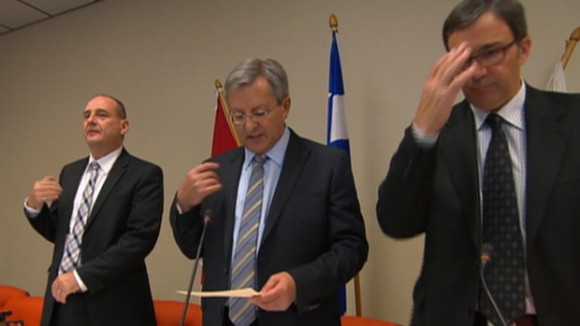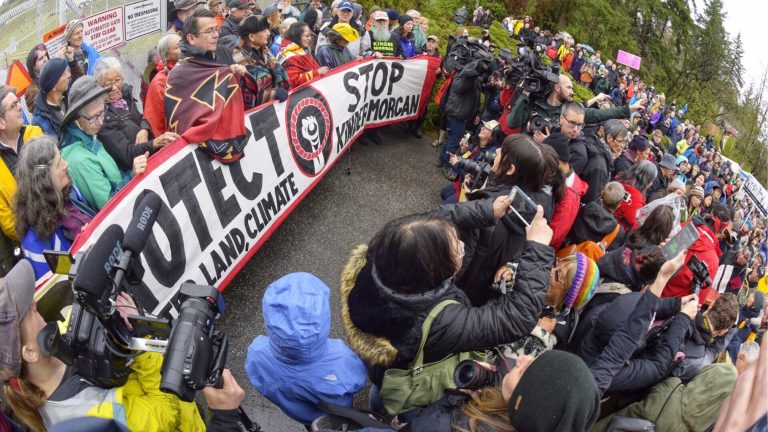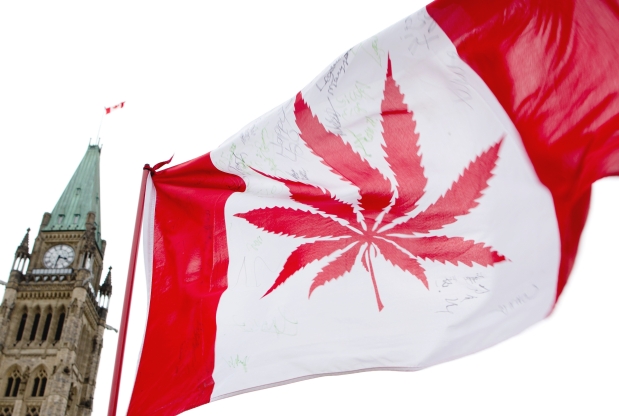Before the Supreme Court’s Saguenay decision becomes shorthand for assaults on religious freedom in Canada, the point needs making that is a thoughtful, fair-minded, and overall welcome ruling.
As with any judgment that must walk the fraught line between faith and politics, there are some findings that should properly raise warning flags. But in general, it seems very much of a piece with the Court’s laudable work in last month’s Loyola case.
True, Loyola was a victory for a private Catholic boys’ school in Montreal against the predations of the Quebec government. Saguenay, released on Wednesday, was a win for an avowed atheist against a Quebec municipal council whose members insisted on prayer before their public sessions.
How can the two be mentioned in the same breath save as an example of opposites attracting? Well, in both cases the Court prudently but firmly checked State encroachment into the religious sphere. In both cases, the Court articulated the essential principal that the State cannot privilege one religion over another, including non-religion and religion over each other.
As Madame Justice Rosalie Abella put it so succinctly in Loyola: “A secular State respects religious differences, it does not seek to extinguish them.” It follows that the religious difference to be respected rather than extinguished must include the difference of religious indifference – or even rejection of religion.
The Saguenay decision insists on that respect by holding the State to a neutral position on religious belief in the context of the exercise, by State representatives, of the duties of the State. Here, by contrast, is what it does not do:
– It does not forbid the saying of prayers at any public function where public figures might be present. It will not keep Prime Minister Harper from ending his speeches with: “God Bless Canada.”
– It does not forbid the putting up of Christmas trees or decorations at city halls across the snowy land.
– It does not mean that Canada has become an officially atheistic State, filling the gap left by the collapse of Communist tyrannies.
On the contrary, in writing the unanimous decision, Mr. Justice Clément Gascon takes pains to refute the arguments of the losing side that atheism has now been given pride of place in Canadian political life.
“A practice according to which a municipality’s officials, rather than reciting a prayer, solemnly declared that the Council’s deliberations were based on a denial of God would be just as unacceptable,” Justice Gascon writes. “The State’s duty of neutrality would preclude such a position, the effect of which would be to exclude all those who believe in the existence of a deity.”
There is, he emphasizes, a distinction between belief, unbelief, and true neutrality.
“True neutrality presupposes abstention, but it does not amount to a stand favouring one view over another.”
The violation of necessary State religious neutrality by the Saguenay municipal council, the Court agreed, constituted unjustifiable discrimination against resident atheist Alain Simoneau. He sought in 2006 to have it cease its practice of opening each meeting with a prayer “in the name of the Father, the Son, and the Holy Spirit,” preceded and followed by all councillors making the Sign of the Cross.
As Justice Gascon wrote, the only reasonable conclusion to be drawn is that the ritual was an overtly Catholic practice. It turned the council chambers, however temporarily, from a place of public political deliberation into a house of prayer.
It was definitively unreasonable, Justice Gascon said, for the council to ask Mr. Simoneau to simply leave the chambers during the prayer if he didn’t like what was going on. While that had a superficial air of reasonable accommodation, it merely perpetuated the discrimination (compare: “Why, we reserved the whole back of the bus for you people! What are you complaining about now?”) More, it was inherently anti-democratic. He had a citizen’s prerogative to be present for the public portion of a meeting on the governance of his community. He was the object, not the source, of behaviour he found objectionable. Democracy does not equate with slinking away and suffering in silence.
Now, as anyone who knows me knows, I happen to have an entire-life-based love of Catholic ritual, practice, and prayer. But it does not take a major mental stretch for me to imagine how uncomfortable a man of Mr. Simoneau’s religious aversion might feel watching his elected officials spend his tax dollars in the name of the Father, the Son, and the Holy Spirit. I am sure I would feel much the same if a crew of a Satanists holed up at my local borough council and began beseeching Beelzebub for budgetary guidance.
Hyperbole? Hardly. Saguenay’s Mayor Jean Tremblay, who insisted on fighting Mr. Simoneau tooth-and-nail on the issue for years, acknowledged in testimony that he considered it a religious battle.
“I’m in this battle because I worship Christ,” Mayor Tremblay told the Quebec Human Rights Tribunal that heard the atheist complaint and ruled in Mr. Simoneau’s favour. “When I get to the hereafter, I’m going to be able to be a little proud. I’ll be able to say to Him: ‘I fought for you. I even went to trial for you.’”
As a Catholic, I wish someone had given the prideful mayor a refresher course in Matthew 6, where Our Lord enjoins his disciples not to pray “like the hypocrites; for they love to stand and pray…at the street corners so that they may be seen by others” (emphasis added). But whether or not we find Mayor Tremblay’s words boastful almost to the point of blasphemy, they are clearly democratically untenable. He’s a local mayor, not a minister of the cloth.
Again, as the Supreme Court’s Saguenay decision makes clear, nothing says he can’t be both. He just can’t be both at the same time while exercising public office – something, quite fittingly, that accords with Catholic canon law.
Much as people of religious faith are conditioned to seeing bad news coming from the Supreme Court of Canada, the Saguenay decision is, generally speaking, a good decision, well-framed, and, it seems, worth welcoming.
~
This column first appeared on the Cardus Daily blog.







